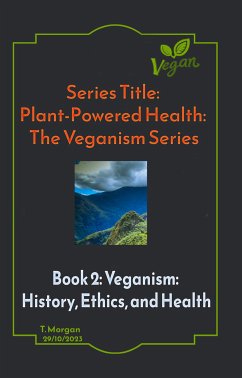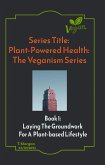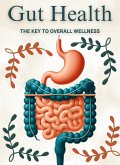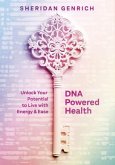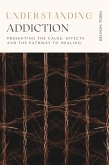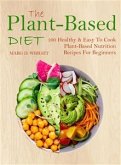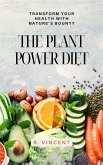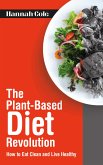Imagine a world where all beings are free from suffering and exploitation. Where our food system is sustainable and doesn't harm the environment. Where everyone has access to healthy and nutritious food. This is the world that vegans are working towards.
In my first book, I introduced you to the concept of veganism and my personal journey to veganism. Although the term "vegan" was new to me at the time, the way of life wasn't. The ancient Egyptians and the Ma'di people of South Sudan and Uganda have lived a vegan lifestyle for centuries.
In this second book, I will take you on a deeper journey into the vegan lifestyle, exploring its history, ethics, environmental impact, and health benefits. I am particularly passionate about the health benefits of veganism, and I believe that it is one of the best ways to care for a newborn baby.
In Chapter 4, I will discuss how the Ma'di people cared for their newborn babies, ensuring that they got the nutrients that are essential for the baby's development. I will also share a recipe for a Ma'di weaning food that is both nutritious and delicious.
I will also draw on the Ma'di way of life to illustrate how a vegan lifestyle can be both healthy and sustainable. The Ma'di people have traditionally followed a plant-based diet, and they are known for their longevity and good health. To help you get started on your own vegan journey, I will provide you with a 21-day meal plan that is inspired by the Ma'di diet. You will get to experiment with different foods and find what works best for you.
In this book, you will learn about the following:
Personal Story
In 2001, I gave birth to my second born and decided to adopt the type of feeding conducted among the Ma'di people and follow their style of care for my son. I decided that he would be on exclusive breast milk for 6 months. I decided no soap on the baby's body for 1 year, only applying Sudanese manufactured sesame oil for his body. When he was 6 months, I introduced him to Ma'di porridge made from fermented millet dough, peanut butter and sugar.
Now that my sons are grown, they are not living a vegan life but from time to time they practice veganism. One time my older son went vegan for a month before giving up. The interesting bit is that when we choose to eat together they eat vegan with me and when doing shopping they buy vegan products for me.
I hope that this book will inspire you to embrace a vegan lifestyle and to join me in creating a more compassionate, sustainable, and healthy world for all, especially for our newborn babies.
In my first book, I introduced you to the concept of veganism and my personal journey to veganism. Although the term "vegan" was new to me at the time, the way of life wasn't. The ancient Egyptians and the Ma'di people of South Sudan and Uganda have lived a vegan lifestyle for centuries.
In this second book, I will take you on a deeper journey into the vegan lifestyle, exploring its history, ethics, environmental impact, and health benefits. I am particularly passionate about the health benefits of veganism, and I believe that it is one of the best ways to care for a newborn baby.
In Chapter 4, I will discuss how the Ma'di people cared for their newborn babies, ensuring that they got the nutrients that are essential for the baby's development. I will also share a recipe for a Ma'di weaning food that is both nutritious and delicious.
I will also draw on the Ma'di way of life to illustrate how a vegan lifestyle can be both healthy and sustainable. The Ma'di people have traditionally followed a plant-based diet, and they are known for their longevity and good health. To help you get started on your own vegan journey, I will provide you with a 21-day meal plan that is inspired by the Ma'di diet. You will get to experiment with different foods and find what works best for you.
In this book, you will learn about the following:
- The history of veganism and its evolution over time
- The ethical arguments for veganism, including the importance of animal sentience and rights
- The environmental impact of animal agriculture and the benefits of a plant-based diet
- The health benefits of a vegan diet, including reduced risk of chronic diseases, improved weight management, and enhanced digestive health
- The social and cultural impact of veganism, including its growing popularity and influence
Personal Story
In 2001, I gave birth to my second born and decided to adopt the type of feeding conducted among the Ma'di people and follow their style of care for my son. I decided that he would be on exclusive breast milk for 6 months. I decided no soap on the baby's body for 1 year, only applying Sudanese manufactured sesame oil for his body. When he was 6 months, I introduced him to Ma'di porridge made from fermented millet dough, peanut butter and sugar.
Now that my sons are grown, they are not living a vegan life but from time to time they practice veganism. One time my older son went vegan for a month before giving up. The interesting bit is that when we choose to eat together they eat vegan with me and when doing shopping they buy vegan products for me.
I hope that this book will inspire you to embrace a vegan lifestyle and to join me in creating a more compassionate, sustainable, and healthy world for all, especially for our newborn babies.

